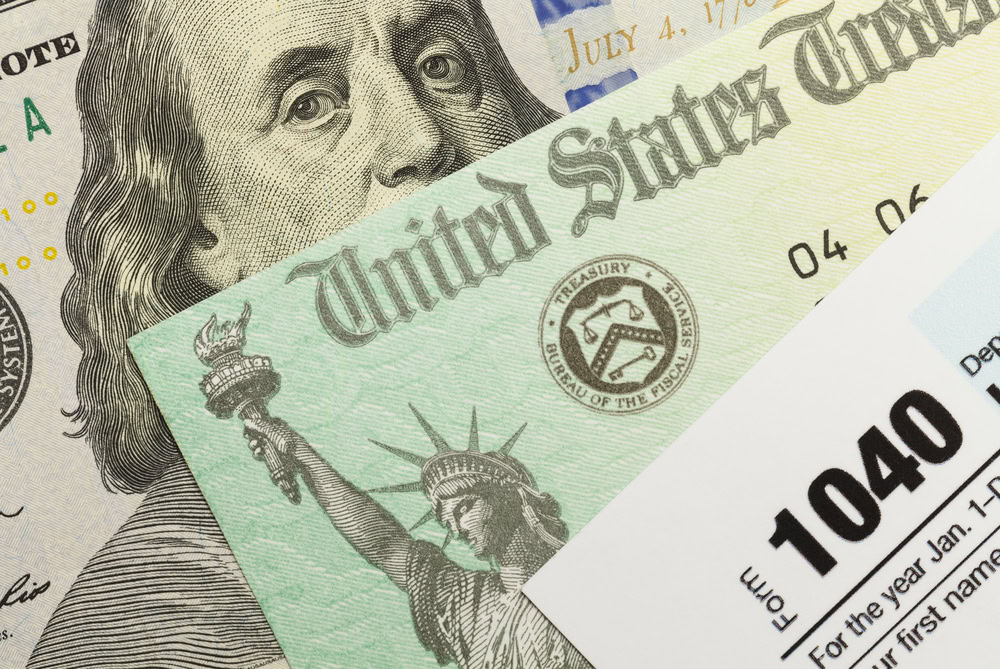Although the tax season has ended for most people, you can never finish preparing your paperwork. You will always need to have the most recent forms of your income and assets. Throughout the year, you may wonder how personal loans affect your taxes.
Taking out a personal loan to consolidate debt, pay for an emergency, or start a business can influence your tax return and possibly impact your refund amount.
Are personal loans taxable income?

Taking out a personal loan usually won’t have any effect on your taxes, since it’s simply a loan that is meant to be repaid. Your income—the money you earn from your job, investments, or other endeavors—is what is considered taxable.
While you can take out a personal loan for anything you need, like consolidating debt or covering an emergency, the loan itself isn’t considered income. Therefore, it isn’t taxable.
Canceled loans
When you make payments as scheduled, that means you’re on time with your payments. But, circumstances such as bankruptcy can lead to your loan being partially or fully canceled. In this case, you would receive a 1099-C tax form from the lender that issued the cancelation. This only happens when $600 or more of the loan is canceled.
The canceled debt is considered income because you didn’t pay it back. You’ll be required to pay taxes on the amount that was canceled. However, this does not affect what you did pay back (assuming you paid something back).
In some cases, a personal loan lender may forgive a loan and consider it a gift. This wouldn’t impact your taxes unless more than $15,000 is forgiven.
Are personal loan payments tax deductible?
Personal loan payments are not tax deductible. This is because most people borrow personal loans for personal issues or needs, which means that these payments cannot be deducted from your taxes. However, there may be some exceptions to this rule depending on your circumstances.
Is interest on a personal loan tax deductible?
There are many tax deductions available for different kinds of loans, such as mortgages and student loans. However, in most cases, the interest payments on personal loans are not tax-deductible.
However, there may be some exceptions where part of a personal loan can be deducted as a business expense. For example, let’s say part of the loan was used to purchase office equipment or a vehicle that is only used for business purposes. In this case, the individual would need to itemize their deductions to report what portion of the loan went towards those business expenses.
Frequently asked questions

Do I have to report a personal loan on my taxes?
There is no need to report a personal loan on your taxes, as it is not considered income. However, any part of the loan that gets canceled must be reported as income, as this is money that you received but did not have to pay back.
Any business expenses that were paid for with the loan can be noted as itemized deductions on your tax return.
Do personal loans affect credit scores?
Personal loan applications can create a hard credit check on your credit report, which can cause your score to temporarily drop. However, as you start making on-time payments on the loan, your score should rebound.
Missing or being late on loan payments can cause your credit score to drop further and make it more difficult to borrow in the future. A low credit score may affect your ability to take out a mortgage or auto loan. Lenders often see a low credit score as an indication that you are not responsible for credit.
What happens if you don’t report a 1099-C?
Did you know that canceled debt is considered income by the IRS? This is because when you don’t repay a loan, you are essentially defaulting on your agreement to pay it back.
1099-C forms are filed by lenders when they cancel a debt, and these forms are sent to both you and the IRS. However, there may be some circumstances in which you can avoid paying taxes on the forgiven debt. For example, filing for Chapter 7 or Chapter 13 bankruptcy means that you are no longer responsible for repaying that debt.
Bottom line

Taking out a personal loan can be a big financial decision. Before you sign on the dotted line, it’s important to understand the tax implications of your loan. Interest and payments on personal loans are usually not tax deductible, but there are some exceptions. To make sure you’re taking full advantage of all the tax benefits available to you, it’s best to consult with a certified public accountant or other tax professional.

